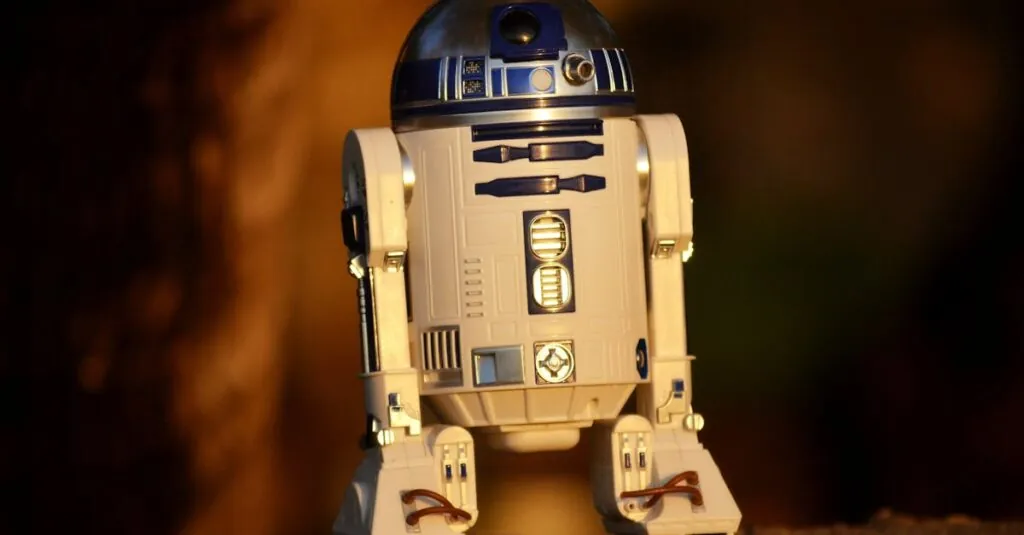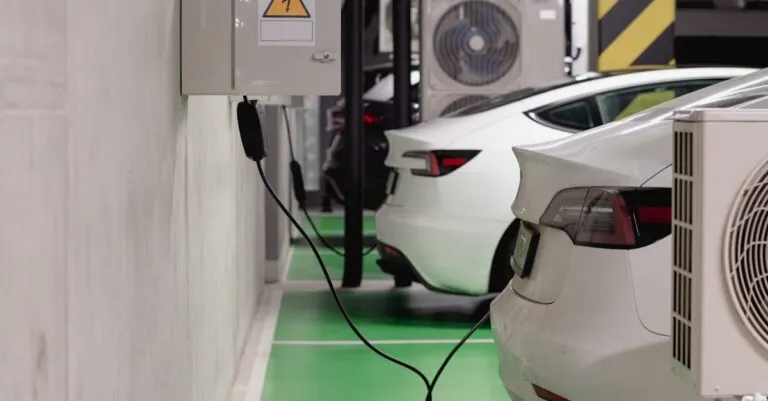Table of Contents
ToggleAs humanity sets its sights on the cosmos, artificial intelligence is becoming the ultimate co-pilot in the quest for the stars. Imagine a future where robots don’t just vacuum your living room but also navigate the vastness of space with the finesse of an intergalactic Uber driver. AI is revolutionizing space exploration, making missions smarter, safer, and—dare we say—more fun.
Overview of AI in Space Exploration
Artificial intelligence significantly transforms space exploration. It enhances efficiency in mission planning, data analysis, and real-time decision-making. AI systems streamline operations by automating routine tasks, allowing human operators to focus on strategic objectives.
Robotic systems equipped with AI technologies assist in various missions. Rovers on Mars, for instance, utilize AI for navigation and obstacle detection. These capabilities help optimize routes and extend exploration timelines.
Additionally, AI contributes to data processing from telescopes and satellites. Algorithms analyze vast datasets, identifying patterns and anomalies that human researchers might overlook. Machine learning models enable astronauts to monitor system health and predict potential failures before they occur.
In terms of safety, AI plays a critical role. Autonomous spacecraft equipped with AI can adjust flight paths and manage communications independently. These systems minimize risks associated with human error during critical mission phases.
AI’s potential also extends to crew support. Intelligent assistants provide real-time feedback and recommendations, improving astronauts’ decision-making under pressure. Their ability to simulate various scenarios allows for better preparation for unforeseen challenges.
As space agencies collaborate on international missions, AI becomes integral in communication and coordination. Shared knowledge and AI resources enhance collective understanding of extraterrestrial environments.
The exploration of distant planets and asteroids showcases AI’s growing capabilities. Advanced analytics guide mission objectives and surface exploration techniques. The synergy between AI and human expertise paves the way for the next era of space discovery.
Historical Context
Artificial intelligence has a rich history in space exploration, evolving alongside the field itself. This progression reflects advancements in technology, enabling smarter mission designs and execution.
Early Applications of AI
Early AI initiatives emerged during the space race, primarily focused on data processing and mission planning. The Apollo program utilized rudimentary AI for trajectory calculations, enhancing navigation precision. NASA’s use of expert systems demonstrated potential in situational analysis, assisting mission control in making informed decisions under pressure. Such applications set the stage for more sophisticated AI integration into later missions.
Evolution of Space Exploration Technologies
Space exploration technologies evolved rapidly, paving the way for increased AI implementation. The introduction of autonomous robotic systems marked a significant shift, allowing spacecraft to operate independently in challenging environments. Mars rovers, like Spirit and Opportunity, showcased advanced AI for terrain navigation and data collection. AI algorithms now process massive data sets from telescopes, identifying celestial phenomena and informing research priorities. As technologies continue to advance, AI’s role becomes increasingly vital in optimizing mission success and enhancing the understanding of extraterrestrial landscapes.
Current Uses of AI in Space Missions
AI plays a pivotal role in modern space missions, demonstrating capabilities across various applications. Elements such as autonomous navigation, data analysis, and robotic assistance reflect its growing influence in exploration efforts.
Autonomous Navigation
Autonomous navigation employs AI to guide spacecraft through complex environments. Spacecraft equipped with advanced sensors can analyze terrain in real time. AI systems process this data, enabling precise navigation around obstacles, as seen with Mars rovers. These rovers utilize AI to optimize their paths, extending their operational lives. Missions involving distant planets and moons benefit significantly from this technology, minimizing risks during exploration.
Data Analysis and Processing
Data analysis becomes more efficient with AI applications in space exploration. Telescopes generate vast amounts of data, often overwhelming human analysts. AI algorithms sift through this information to identify patterns and anomalies, which might otherwise go unnoticed. They prioritize critical findings, streamlining research efforts. AI also assists in predicting cosmic events, contributing to a deeper understanding of the universe.
Robotic Assistance
Robotic assistance enhances astronaut capabilities during missions. AI-driven robots perform various tasks, from conducting experiments to maintaining spacecraft systems. Intelligent systems provide real-time feedback, facilitating better decision-making under pressure. These robots can operate autonomously in hazardous environments, allowing human crews to focus on their primary objectives. Collaboration between humans and AI systems leads to increased mission success rates and safer explorations.
Future Potential of AI in Space Exploration
AI’s future in space exploration promises transformative advancements, amplifying efficiency and safety in missions. Optimization of decision-making processes stands at the forefront of these developments.
Enhanced Decision-Making
AI systems facilitate enhanced decision-making through real-time data analysis. By interpreting complex datasets, AI algorithms identify patterns that guide mission strategies. Decision support systems can simulate scenarios, providing astronauts with tailored recommendations in critical situations. Autonomous spacecraft benefit from AI’s ability to adapt flight paths based on sensory input. These adjustments minimize risks associated with human oversights during space travel. Collaboration among AI systems and human operators leads to better-informed choices, ultimately improving mission success rates.
AI-Driven Missions to Other Planets
AI’s engagement in interplanetary missions showcases its vast potential. Spacecraft designed with advanced AI navigate intricate planetary terrains autonomously. Missions to Mars frequently utilize AI for optimizing flight and landing maneuvers, enabling precise touchdown sequences. AI-supported rovers analyze surface conditions and convey critical data back to Earth, assisting scientists in their research. Robotic exploration of asteroids relies on AI to plan optimal routes for resource retrieval. This synergy between AI and robotic systems ushers in a new era of exploration, enabling humanity to extend its reach beyond Earth with unprecedented capabilities.
Ethical Considerations
AI’s integration into space exploration raises essential ethical considerations. The reliance on AI decision-making in critical situations merits scrutiny. AI systems analyze vast amounts of data quickly, delivering insights that guide astronauts in emergencies. When faced with unpredictable challenges, these systems can simulate possible outcomes, allowing crews to evaluate options effectively. However, concerns arise regarding the transparency and accountability of these algorithms.
The impact on human astronauts also requires attention. AI supports astronauts by managing routine tasks, but it can create dependence on technology. Astronauts might encounter diminished skills in navigation and problem-solving if they rely too heavily on AI. Furthermore, ethical dilemmas involving AI’s role in life-or-death situations emerge. Assessing how AI systems make decisions under stress helps establish trust and reliability. Balancing autonomy and human oversight is crucial to ensure AI enhances rather than undermines astronaut capabilities.
Conclusion
AI is reshaping the landscape of space exploration in remarkable ways. Its ability to enhance mission efficiency while ensuring astronaut safety is paving the way for unprecedented discoveries. As AI continues to evolve it will play an even more integral role in navigating the complexities of space travel.
The collaboration between AI and human operators fosters a future where exploration is not only smarter but also more sustainable. While ethical considerations remain important the balance between human oversight and AI autonomy will be key to maximizing the potential of this technology.
Ultimately AI’s contributions will help humanity push the boundaries of exploration and deepen our understanding of the universe.







